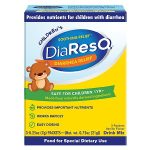When Nature Calls: The Importance of Anti-Diarrhea Medicine for Dogs
As any dog owner knows, there’s nothing quite like the joy and excitement that comes with sharing your life with a furry friend. But when nature calls, and your pup is dealing with diarrhea, that excitement can quickly turn to frustration and concern. Diarrhea in dogs can be caused by a range of factors, from eating something they shouldn’t have to underlying medical conditions. And while it’s not the most pleasant topic to discuss, it’s an important one – especially when you’re trying to keep your furry friend comfortable and healthy.
The Consequences of Untreated Diarrhea
Left untreated, diarrhea in dogs can lead to a range of complications, from dehydration and weight loss to increased risk of secondary infections and even life-threatening conditions. And for older or younger dogs, or those with pre-existing medical conditions, the consequences can be especially severe.
This is why it’s crucial for dog owners to understand when to intervene and how to treat diarrhea effectively. In this post, we’ll explore the importance of anti-diarrhea medicine for dogs, including what works best and what to look out for. So, let’s dive in and get a better understanding of how to keep your pup comfortable and healthy – even when nature calls.
The Importance of Anti-Diarrhea Medicine for Dogs
When your furry friend is experiencing diarrhea, it’s essential to seek the advice of a veterinarian as soon as possible. While some cases of diarrhea may resolve on their own with proper hydration and dietary changes, others may require the use of anti-diarrhea medicine to help manage symptoms and prevent complications.
The Role of Anti-Diarrhea Medicine in Dog Health
Anti-diarrhea medicine for dogs is designed to help alleviate the symptoms of diarrhea, including frequent bowel movements, loose stools, and abdominal cramping. By slowing down intestinal motility and reducing stool frequency, these medications can help your pup feel more comfortable and reduce the risk of dehydration.
There are several types of anti-diarrhea medicine available for dogs, each with its own unique mechanism of action. Some common examples include:
- Loperamide (Imodium): This medication works by slowing down intestinal contractions, giving the gut a chance to absorb excess fluids and electrolytes.
- Metronidazole: This antibiotic is often used to treat diarrhea caused by infections or inflammatory bowel disease. It works by reducing the growth of harmful bacteria in the gut.
In addition to these medications, your veterinarian may also recommend dietary changes, such as a bland diet or a hydrolyzed protein diet, to help manage your pup’s symptoms and prevent further complications.
When to Use Anti-Diarrhea Medicine for Dogs
Not all cases of diarrhea require the use of anti-diarrhea medicine. In fact, some mild cases may be managed through simple dietary changes and hydration alone. However, if your pup is experiencing any of the following symptoms, it’s likely that you’ll need to seek the advice of a veterinarian:
- Severe diarrhea: If your pup is having more than 3-4 bowel movements per day or producing stool that is watery or blood-tinged.
- Prolonged diarrhea: If your pup has been experiencing diarrhea for more than 2 days or if the symptoms persist despite dietary changes and hydration.
- Dehydration: If your pup shows signs of dehydration, such as dry gums, sunken eyes, or a lack of interest in food and water.
In these cases, anti-diarrhea medicine can be an effective way to help manage symptoms and prevent further complications. However, it’s always best to consult with a veterinarian before starting any new medications or treatments.
Learn more about dog diarrhea and how to manage itAs you can see, anti-diarrhea medicine for dogs is an important tool in the fight against canine digestive issues. By understanding when to use these medications and how they work, you can help your furry friend feel more comfortable and reduce the risk of complications. Stay tuned for our next post, where we’ll explore some common causes of diarrhea in dogs and what you can do to prevent it.
When Nature Calls: The Importance of Anti-Diarrhea Medicine for Dogs
As any dog owner knows, there’s nothing quite like the joy and excitement that comes with sharing your life with a furry friend. But when nature calls, and your pup is dealing with diarrhea, that excitement can quickly turn to frustration and concern. Diarrhea in dogs can be caused by a range of factors, from eating something they shouldn’t have to underlying medical conditions. And while it’s not the most pleasant topic to discuss, it’s an important one – especially when you’re trying to keep your furry friend comfortable and healthy.
The Consequences of Untreated Diarrhea
Left untreated, diarrhea in dogs can lead to a range of complications, from dehydration and weight loss to increased risk of secondary infections and even life-threatening conditions. And for older or younger dogs, or those with pre-existing medical conditions, the consequences can be especially severe.
This is why it’s crucial for dog owners to understand when to intervene and how to treat diarrhea effectively. In this post, we’ll explore the importance of anti-diarrhea medicine for dogs, including what works best and what to look out for. So, let’s dive in and get a better understanding of how to keep your pup comfortable and healthy – even when nature calls.
Summary
In this post, we’ve explored the importance of anti-diarrhea medicine for dogs. We’ve seen that untreated diarrhea can have serious consequences for our furry friends, and that it’s crucial for dog owners to understand how to treat it effectively. By using the right medication and taking other necessary precautions, you can help your pup feel more comfortable and reduce the risk of complications.
Final Insights
If your pup is dealing with diarrhea, don’t hesitate to seek advice from a veterinarian. They’ll be able to provide personalized guidance on the best course of treatment and help you develop a plan to keep your furry friend happy and healthy.
A Final Word: Prioritizing Your Pup’s Health
When it comes to keeping your pup comfortable and healthy, there’s no room for compromise. Whether they’re dealing with diarrhea or any other health issue, it’s crucial that you prioritize their well-being and take action to address the problem. By doing so, you’ll not only be giving your furry friend the best chance at a happy and healthy life – but also ensuring that the bond between you grows stronger with each passing day.
Related Posts:
- The Fear of Being Alone Music Video: Dive into the emotional depths of this thought-provoking music video and explore the complexities of human connection. Discover how it relates to your own experiences with loneliness.
- Which of the Following is Not a Function of the Liver?: Are you curious about the incredible organ that keeps you alive? Learn the surprising answer to this question and unlock the secrets of your liver’s many roles.
- What is Anemia Caused by Folic Acid Deficiency?: Get the inside scoop on a vital nutrient that’s essential for healthy blood cells. Find out how a lack of folic acid can lead to anemia and what you can do to prevent this condition.



